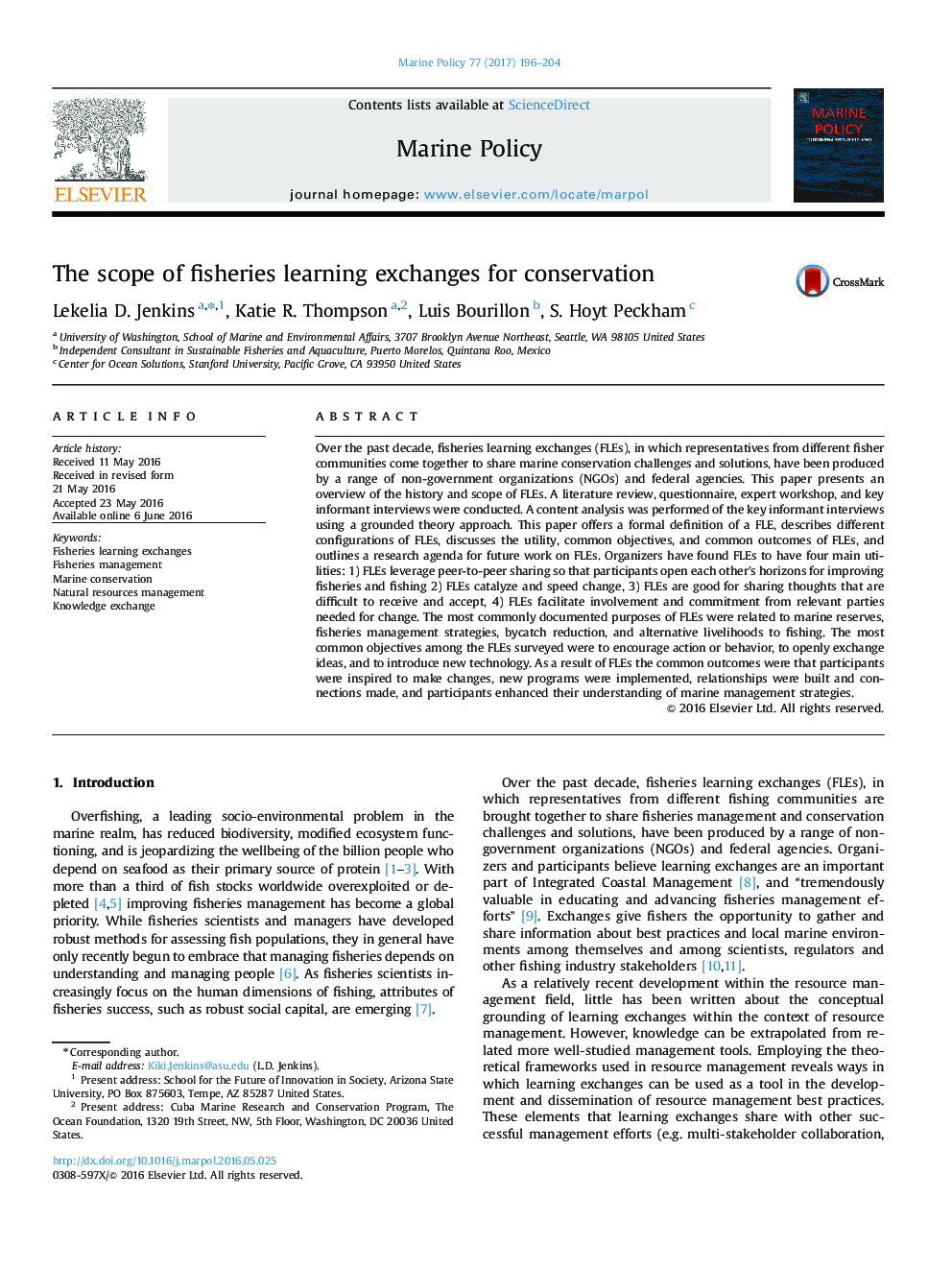| کد مقاله | کد نشریه | سال انتشار | مقاله انگلیسی | نسخه تمام متن |
|---|---|---|---|---|
| 5118245 | 1485502 | 2017 | 9 صفحه PDF | دانلود رایگان |
- This study presents an overview of the history and scope of fisheries learning exchanges (FLEs).
- FLEs configurations: reciprocal FLE, model-transfer FLE, congress-style FLE.
- FLEs' main utilities, purposes, objectives, and outcomes are described.
Over the past decade, fisheries learning exchanges (FLEs), in which representatives from different fisher communities come together to share marine conservation challenges and solutions, have been produced by a range of non-government organizations (NGOs) and federal agencies. This paper presents an overview of the history and scope of FLEs. A literature review, questionnaire, expert workshop, and key informant interviews were conducted. A content analysis was performed of the key informant interviews using a grounded theory approach. This paper offers a formal definition of a FLE, describes different configurations of FLEs, discusses the utility, common objectives, and common outcomes of FLEs, and outlines a research agenda for future work on FLEs. Organizers have found FLEs to have four main utilities: 1) FLEs leverage peer-to-peer sharing so that participants open each other's horizons for improving fisheries and fishing 2) FLEs catalyze and speed change, 3) FLEs are good for sharing thoughts that are difficult to receive and accept, 4) FLEs facilitate involvement and commitment from relevant parties needed for change. The most commonly documented purposes of FLEs were related to marine reserves, fisheries management strategies, bycatch reduction, and alternative livelihoods to fishing. The most common objectives among the FLEs surveyed were to encourage action or behavior, to openly exchange ideas, and to introduce new technology. As a result of FLEs the common outcomes were that participants were inspired to make changes, new programs were implemented, relationships were built and connections made, and participants enhanced their understanding of marine management strategies.
155
Journal: Marine Policy - Volume 77, March 2017, Pages 196-204
